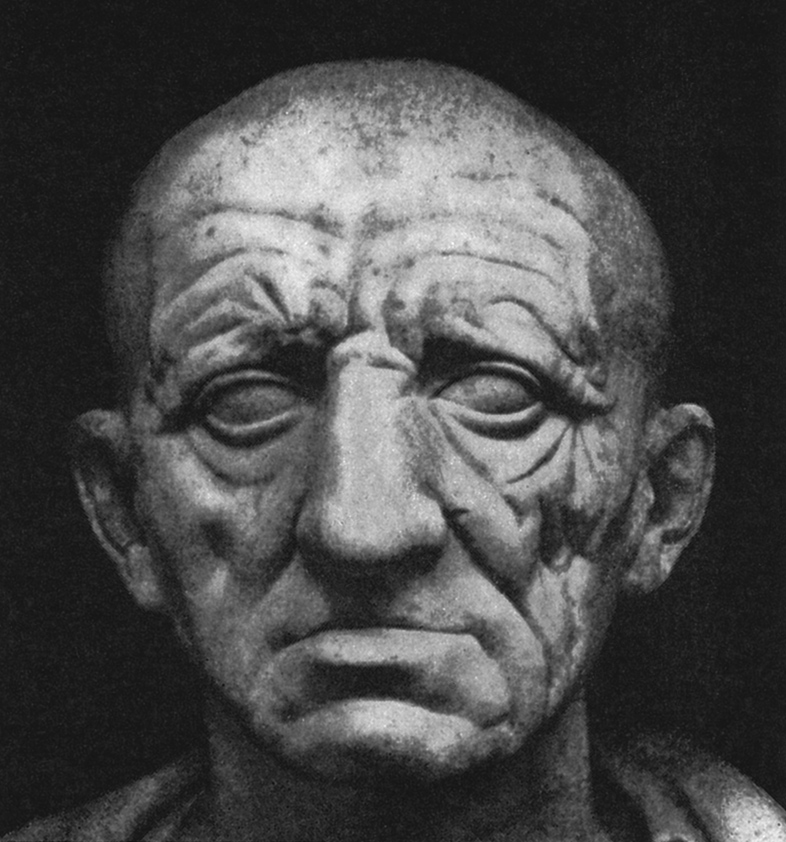
Moving on from the last topic, Cato continues on his defence of old age; he gladly proclaims:
“We come now to the third objection to growing older – that the pleasures of the flesh fade away. But if this is true, I say it is indeed a glorious gift that age frees us from youth’s most destructive failings”
Bearing in mind that this work is not exclusively for old people but also for the youth who may grow to old age. The main themes of this objection are addressed by each sub-heading.
Where desire rules, there is no place for self-control.
Cato recalled (reported by Cicero, that is) the words of Archytas of Terentum, a Pythagorean philosopher and friend of Plato. Who said ‘the most fatal curse given to men by nature is sexual desire. From it spring passions of uncontrollable and reckless lust seeking gratification.’ With consequences being ‘from it come secret plotting with enemies, betrayals of one’s country, and the overthrow of governments.’
Plotting? overthrow? betrayal? What about power hunger? revenge? or greed? aren’t these the more appropriate motivations? lust is only one species of desire among others. Archytas is a little bit hyperbolic in stating that sexual lust leads to the overthrow of governments, but I get what the man is trying to say, namely that the spur for violent action, even to grand scales like overthrowing countries, are born from the passions and the reproductive urge can be the strongest passion of all! The take home summary is this: the pursuit for sensual gratification allows attempts by any means necessary to obtain it. When it comes to youth, it’s often the case that reason is the slave to the passions.
Cato is especially addressing the beardless youth or the adolescents. Since they are in an early developmental stage in human development they are inexperienced, undergoing hormonal imbalances which are the cause of unchecked passions and are readily aroused from sensory stimuli which includes visual, olfactory or somatosensory cues; to be young is to seek a dopamine high! What purpose does this adolescent interest in sex serve other than a sole evolutionary objective: to produce offspring so that the parental genes can survive into posterity?
To give my own analogy of how Cato views the youth it would be like those children being led away under the spell of the Pied Piper of Hamelin but instead of prancing off with the Pied Piper they’re spellbound with the craving for sensual desire.
In the Freudian psychoanalytic theory of personality, the psyche is divided up into id, ego and superego. The id is the instinctual part of the psyche which is responsible for basic urges, needs, and desires and is characterized with an impulsive need to act on them. The superego is concerned with social rules, morals and thinking about the consequences of actions. If Cato would have it, then in youth the id dominates and in old age, the superego dominates.
“And since nature – or perhaps some god – has given men no finer gift than human intelligence, this divine endowment has no greater foe than naked sensuality.”
Cato shares an incident from his own life when he was censor, 184 BC he ejected from the senate Lucius Flaminius. The reason being is that when Flaminius was in Gaul he held a banquet in which during this banquet he had a man executed, who from the text was presumably a Roman citizen, because it was by the request of a prostitute.
Cato saw this act as scandalous and could not leave this ill discipline born from passion to go unpunished, otherwise Rome would have been dishonoured. In this incident Cato spoke out against corruption because he knew corruption follows from the passions.
Sensual pleasures and addiction
Archytas asks us to imagine an imaginary scenario where a person is enjoying every exquisite sensual pleasure possible. He very much doubted someone in this situation can use their mind in any rational or reasonable way. However it’s the last sentence that much could be said on:
“Therefore, nothing is more detestable or pernicious than sensual pleasure. If a person indulges in it too much and too long, it plunges the soul into utter darkness.”
In that concluding statement he’s talking about addiction. The forms of addiction can be alcohol, drugs, smoking, food disorders, gambling, pornography or even video gaming. And in any one of those examples, if we indulge in ‘it too much and too long’ we risk becoming addicted. If we become addicted then we enter into a new psychological state of dependence on them because the high of sensual pleasure is so rewarding.
The addiction takes first priority and being a habit distracts the mind from other activities. Consequences being the loss of efficiency in work, stagnation in our growth for personal self-development, stifles our expansion into new activities or hobbies and any spiritual growth becomes sluggish and that right there, with a heavy heart, plunges the soul into utter darkness.
Old age is not a denial of pleasure
As a disclaimer, Cato mentions along the way in the objection that he is not at war with pleasure and we shouldn’t deny sensual pleasure outright, instead he advocated for moderate pleasures. For example, the old can still enjoy the delights of a moderate meal, engage in social conversations with friends, family and countrymen. Cato especially delighted in having a meal with friends or the convivium. Not so much the food, but it was the socialising that Cato enjoyed most:
“I am so grateful to old age for increasing my delight in conversation while lessening my desire for food and drink.”
What Cato was fighting against is the cravings for sensual pleasures which grip the mind into a frenzy of passion. From this council, realise that the passions for sensual pleasures can enslave our reason and lead us to ruin. Later, during the Roman Empire, Seneca held the same opinion about bodily desire but his delivery was better in my opinion.
“I do not maintain that the body is not to be indulged at all; but I maintain that we must not be slaves to it… We should conduct ourselves not as if we ought to live for the body, but as if we could not live without it.”
Whether the pleasures be gustatory, auditory, visual, olfactory or tactile we can still enjoy them provided we are not ensnared like a fish in the net of desire.
Old age can be liberating
In what way of all things can old age be liberating?
“Why am I talking so much about pleasure? Because the fact that old age feels little desire for sensual delights is not only no cause for reproach but indeed a reason to praise it highly.”
Cato argues that these passionate feelings that emerge out of sensual desires cloud our judgment and are at war with reason. Through Cato’s eyes the loss of sensuality because of old age is not a loss of something that deserves grieving but is a removal of a burden that robs the mind of its integrity and distracts us from constructive pursuits. We should celebrate this falling away of desire as like being freed from a ball and chain fetter.
For us to yearn for something and yet not possess it can be quite dissatisfying , but you can’t be troubled by something that did not tempt you in the first place. If you don’t long for something you will never miss it!
In Plato’s Republic, Sophocles, when he was already an old man, was asked if he ‘still enjoyed sex’ and if he was capable of making love to a woman he replied ‘quiet man! I am very glad to have escaped from all that, like a slave who has escaped from a savage and tyrannical master.’
“How wonderful it is for the soul when – after so many struggles with lust, ambition, strife, quarrelling, and other passions – these battles are at last ended and it can return, as they say, to live within itself.”
No greater satisfaction to be had in life than a leisurely old age devoted to knowledge and learning
The passion that is to be tolerated is the passion for learning, which Cato sees as a passion that can grow and develop as the years go by. Cato pointed to Solon of Athens who boasted that as he grew older he learned more and more every day.
Cato ends with this to which I wholeheartedly agree:
“Surely there can be no greater pleasure than the pleasure of the mind.”
I know exactly what Cato means by pleasure of the mind. It’s not, as you may have guessed, sensual pleasures which are arguably also experienced by the mind. Pleasure of the mind here means the delight we experience from intellectual pursuits, building on our self-improvement and gathering wisdom. What is this sort of pleasure like? It’s the relish you experience when reflecting on what you have learned and the sense of achievement felt knowing that your intellectual awareness has broadened.
So this special pleasure comes from a broad range of sources to which I argue further that this pleasure of the mind we experience as a consequence from learning is superior than sensual pleasures in this: that self-improvement and the pleasure of the mind that comes with it is something that can be accumulated. Unlike in sensual pleasures be that gustatory, auditory, visual, olfactory or tactile which once experienced cannot be grasped because they are fleeting impulses. Perhaps come old age we may not have the strength of younger years, but we will have instead the robustness of the mind. Learning a new fact, a new skill or becoming aware of a new philosophical perspective – all that is wisdom and it can be accumulated over time so we may employ it for appropriate use. So if you’re entering your winter years in life then pursue the pleasure of the mind as Cato recommends.

